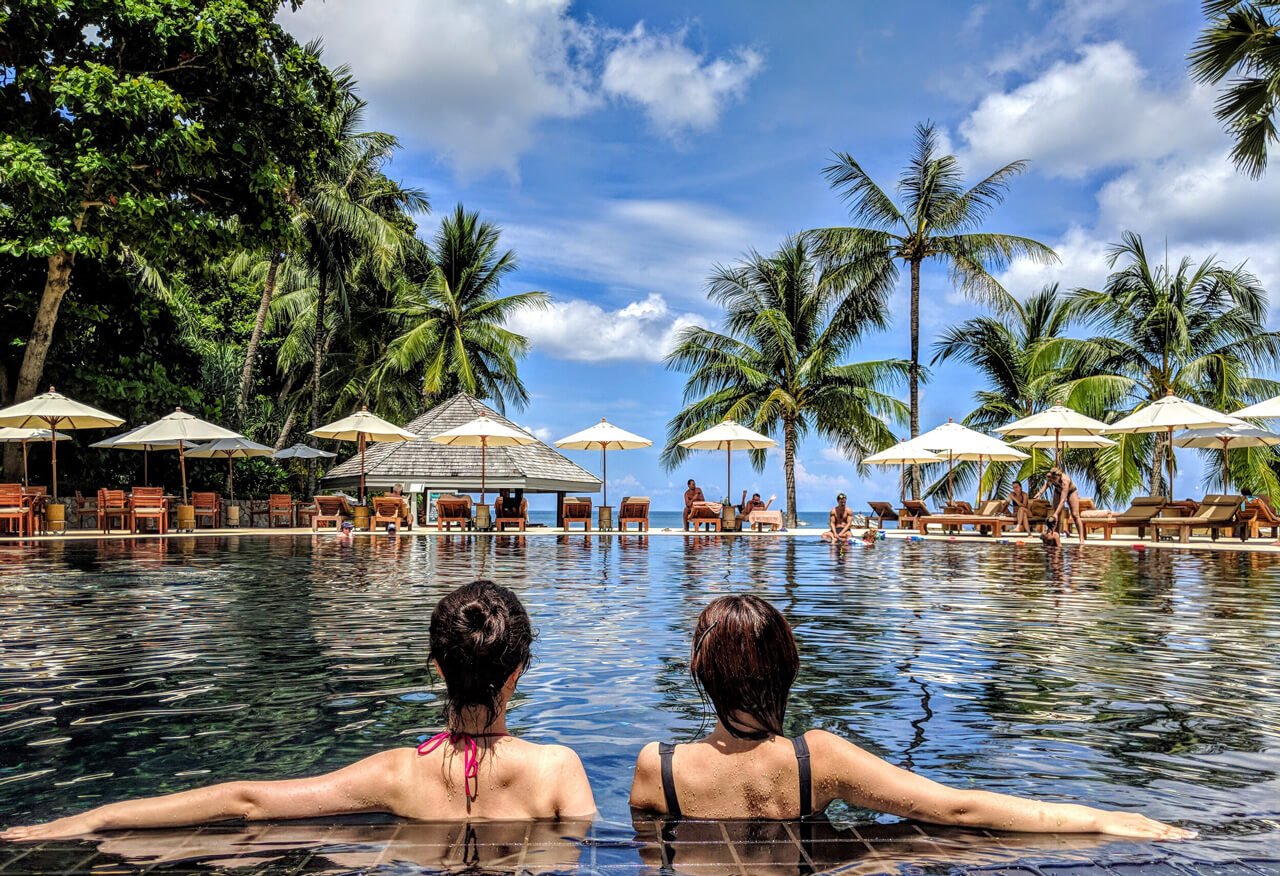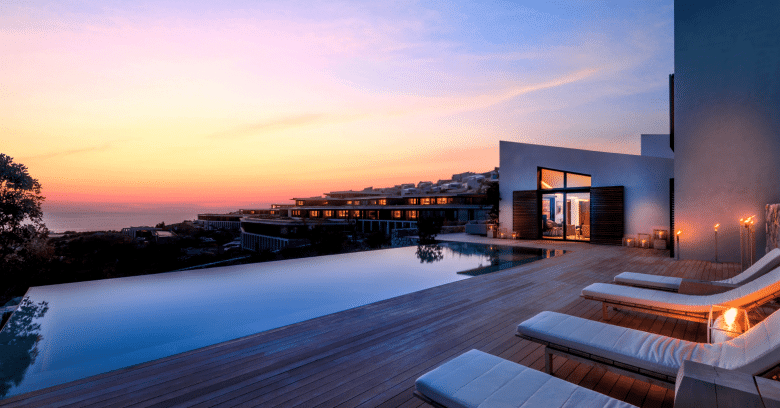Luxury hotels, known for their opulence and exclusivity, rely on sophisticated marketing strategies to attract discerning guests. The competitive landscape in the luxury hospitality sector requires these hotels to employ a mix of traditional and digital marketing techniques, each meticulously tailored to resonate with high-net-worth individuals. In this article, we will explore how luxury hotels allocate their marketing budgets, the challenges they face with standard marketing options, and some innovative, out-of-the-box marketing ideas to stay ahead in this competitive industry.

The Breakdown of Marketing Spend in Luxury Hotels
Luxury hotels typically distribute their marketing budgets across several key platforms, each serving a distinct purpose in attracting guests and building brand recognition. Here’s a closer look at how these budgets are often allocated:
- Digital Marketing (35-40%):
- Search Engine Optimization (SEO) and Content Marketing (10-15%): SEO and content marketing are foundational for ensuring the hotel is discoverable online. This includes creating high-quality blog posts, destination guides, and other content that can rank well on search engines, drawing potential guests to the hotel’s website.
- Pay-Per-Click Advertising (PPC) (10-12%): PPC campaigns on platforms like Google Ads and Bing are crucial for targeting specific keywords related to luxury travel. These ads are particularly effective in capturing intent-driven traffic, leading to higher conversion rates.
- Social Media Marketing (8-10%): Platforms like Instagram, Facebook, and LinkedIn are leveraged for both organic and paid campaigns. Instagram, in particular, plays a pivotal role in showcasing the visual appeal of luxury properties through influencer partnerships and high-quality imagery.
- Email Marketing (5-8%): Despite being one of the oldest digital marketing channels, email marketing remains incredibly effective for luxury hotels. Personalized email campaigns, often sent to a curated list of previous guests or potential high-net-worth clients, are used to promote special offers, exclusive events, and seasonal packages.
- Traditional Marketing (25-30%):
- Print Advertising (10-15%): Print ads in high-end lifestyle magazines, travel journals, and luxury-focused publications remain a staple for luxury hotels. These ads are designed to reach affluent readers who are likely to travel in style.
- Public Relations (PR) (10-12%): PR is essential in building and maintaining the brand’s image. This includes media relations, securing features in travel magazines, and organizing press trips for influential journalists.
- Outdoor Advertising (5-8%): Billboards and advertisements in strategic locations like airports, luxury malls, and major city centers help increase visibility among high-net-worth travelers.
- Event Marketing and Partnerships (15-20%):
- Luxury Events and Sponsorships (10-12%): Hosting and sponsoring high-profile events such as fashion shows, charity galas, and exclusive product launches is a way for luxury hotels to position themselves within the luxury market and attract affluent guests.
- Partnerships with Luxury Brands (5-8%): Collaborations with luxury brands (e.g., automotive, jewelry, fashion) for co-branded events or special offers are mutually beneficial, enhancing the brand prestige of both partners.
- Direct Sales and Distribution Channels (10-15%):
- Direct Booking Platforms (5-8%): A significant portion of the budget is allocated to maintaining and enhancing the hotel’s own booking platform, ensuring it’s user-friendly and offers exclusive benefits to direct bookers.
- Third-Party Booking Sites and OTAs (5-7%): While Online Travel Agencies (OTAs) like Expedia and Booking.com are essential for filling rooms, they are also costly due to the commissions charged. However, they remain an important channel, especially during off-peak seasons.
Challenges Faced with Standard Marketing Options
Despite the sophisticated marketing strategies employed, luxury hotels face several challenges in filling rooms and maintaining high occupancy rates:
- High Competition: The luxury hotel market is highly competitive, with new properties continually entering the market. This saturation makes it challenging for hotels to stand out, even with substantial marketing efforts.
- Seasonal Fluctuations: Luxury hotels often experience significant variations in demand depending on the season. During low seasons, filling rooms can be particularly challenging, leading to increased reliance on discounted rates or promotions, which can dilute the brand’s luxury image.
- High Cost of Acquisition: The cost of acquiring a new guest, especially through digital channels like PPC and OTAs, can be prohibitively high. This cost is exacerbated by the commission fees charged by third-party booking platforms, cutting into profit margins.
- Evolving Guest Expectations: Luxury travelers today expect more than just a beautiful room; they seek personalized, unique experiences. Meeting these evolving expectations requires hotels to continuously innovate, which can be resource-intensive and challenging to scale.
Out-of-the-Box Marketing Ideas for Luxury Hotels
To overcome these challenges and distinguish themselves in a crowded market, luxury hotels must think creatively and explore innovative marketing strategies. Here are some out-of-the-box ideas that can help luxury hotels effectively market their properties:
- Experiential Marketing:
- Luxury travelers crave unique experiences. Hotels can offer exclusive, curated experiences that align with the interests and lifestyles of their target guests. This could include private tours of local art galleries, bespoke culinary experiences with renowned chefs, or VIP access to cultural events. Marketing these experiences rather than just the rooms can create a strong emotional connection with potential guests.
- Virtual Reality (VR) Tours:
- Incorporating VR into the marketing strategy allows potential guests to explore the property from the comfort of their homes. High-quality VR tours can showcase the hotel’s amenities, rooms, and surrounding environment, providing an immersive experience that can significantly influence the decision-making process.
- Influencer-Led Destination Weddings:
- Partnering with influencers to host and promote destination weddings at the hotel can be a powerful marketing tool. Not only does this generate buzz on social media, but it also showcases the hotel as a premier destination for high-profile events. The content created from these weddings can be repurposed across various marketing channels.
- Wellness Retreats and Health-Conscious Marketing:
- As wellness tourism continues to grow, luxury hotels can market themselves as wellness retreats. Offering packages that include yoga sessions, spa treatments, and health-focused culinary options can attract health-conscious travelers. Collaborating with wellness influencers or hosting wellness events can further enhance this positioning.
- Sustainable Luxury Initiatives:
- With increasing awareness of environmental issues, luxury hotels can differentiate themselves by emphasizing their sustainability efforts. Marketing initiatives that highlight eco-friendly practices, such as using renewable energy, sourcing local and organic food, and eliminating single-use plastics, can appeal to the growing segment of environmentally conscious luxury travelers.
- Personalized Travel Itineraries:
- Offering personalized travel itineraries that cater to the specific interests and preferences of guests can create a highly tailored and memorable experience. Hotels can market these bespoke itineraries through email campaigns, social media, and their websites, emphasizing the level of personalization and attention to detail.
- Interactive and Gamified Booking Experiences:
- Introducing interactive elements or gamification on the hotel’s booking platform can enhance user engagement and make the booking process more enjoyable. For example, guests could earn points or rewards for completing certain actions, such as booking directly through the website, signing up for the hotel’s loyalty program, or sharing their booking on social media.
Final Thought
Marketing luxury hotels requires a delicate balance of traditional and innovative strategies, each carefully crafted to resonate with a sophisticated audience. While digital marketing, traditional media, and direct sales channels are integral to a hotel’s success, the ability to think creatively and adopt out-of-the-box ideas can set a property apart in a crowded market. By offering unique experiences, embracing new technologies, and aligning with evolving guest preferences, luxury hotels can not only fill their rooms but also build lasting relationships with their guests, ensuring long-term success in the competitive luxury hospitality sector.

